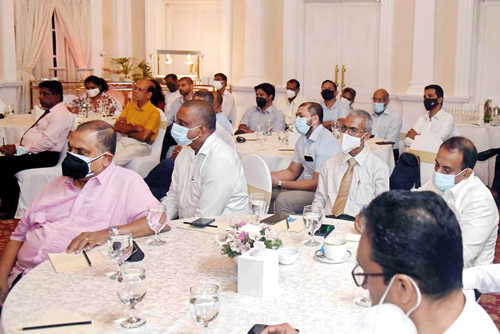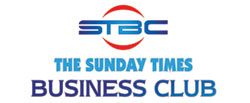Muddling through Lanka’s foreign exchange crisis

Audience.
There are many debates these days as to why Sri Lanka must or must not reach out to the International Monetary Fund (IMF) for assistance in overcoming the current debilitating economic crisis.
Looking at four things about today’s economic situation that is historically unprecedented for Sri Lanka — the country’s reserves have fallen to one-and-a-half month of imports, a record breaking low since the creation of the Central Bank; credit ratings are low and Sri Lanka has lost access to international financial markets; debt to GDP ratio has gone up by 24 per cent in two years and total public debt including state owned enterprises have risen to 119 per cent. The country’s interest cost to government revenue is 71 per cent, the highest in Sri Lanka’s history and the highest in the world.
These were some of the points that were debated last Tuesday when the Sunday Times Business Club (STBC) hosted a discussion on ‘Going to the IMF’ at the Taj Samudra Hotel in Colombo. Economists – LankaClear Chairman Dr. Kenneth De Zilwa and Verite Research Executive Director, Dr. Nishan De Mel shared their thoughts. Economics Prof. Sirimal Abeyratne was the moderator. It was the first physical meeting of the club in two years with this year’s host hotel being the Taj Samudra.
Dr. De Mel in his remarks stated, “Sri Lanka going to the IMF 16 times in the past, is why we have a problem of governance. The government doesn’t know to manage its economy well.We need a diagnosis of whether it is the IMF’s prescriptions or Sri Lanka’s bad governance that has led Sri Lanka into difficulty. The country has a problem of a lack of commitment on good behaviour.”
“IMF gives a programme and monitors it and when you are in the programme you must behave. It becomes an external commitment device because the internal commitment devices are not working. IMF locks up the government for better behaviour,” he added.
Sri Lanka had good growth for six years in the past out of which three years were when the country was under the IMF programme. The correlation and view people have that IMF leads to lower growth is unsubstantiated. Sri Lanka’s own history provides an example how the country was managed under the IMF programme and when it wasn’t, pointed out Dr. De Mel.
 The only way forward for Sri Lanka is to restructure its debt. “We need to reach out to the creditors and take a loss on the debt. The longer we wait the more fuel shortages, medicine shortages, inflation, rupee depreciation pain will increase on a weekly basis. The delay is costing the country’s economy enormously. The IMF is extremely important for restructuring the debt. They can do a debt sustainability analysis, build credibility confidence leverage to get you the best creditors, pay you if you stop paying the creditors,” he noted.
The only way forward for Sri Lanka is to restructure its debt. “We need to reach out to the creditors and take a loss on the debt. The longer we wait the more fuel shortages, medicine shortages, inflation, rupee depreciation pain will increase on a weekly basis. The delay is costing the country’s economy enormously. The IMF is extremely important for restructuring the debt. They can do a debt sustainability analysis, build credibility confidence leverage to get you the best creditors, pay you if you stop paying the creditors,” he noted.
Expressing a different view, Dr. De Zilwa stated, “Sri Lanka has to revisit the ‘profit story’ only through making the country’s export, manufacturing and industrialisation sector competitive that this can be achieved, not services, as we have seen now. It’s not by going to the IMF. The IMF will tell you to depreciate the currency, increase the interest rates, hands off reserves, this sounds good, but is extremely dangerous. Globally too the IMF has done the same thing. All developing countries that have sought IMF assistance have not prospered. These are destructive policies the IMF brings into countries which erode competitiveness.”
Revisiting the IMF now is going to be at the cost of business. The country has seen this cycle repeat itself for the last so many years from 1965, i.e. 16 times. “If we did all what the IMF said through multiple governments and programmes given to us, couldn’t we have got our act right by now? It’s a shame on us to go for the 17th time,” he added.
He also noted, “Due to accessibility to funding because of the perennial problem to finance the trade deficit, the country had to go to capital markets, borrow and finance. Trade deficit continues to widen which to date is the crux of the problem that has led us into a huge cash flow issue. The country has a US$10 billion gap that needs to be financed. The current account doesn’t sufficiently meet the adequate financing and therefore we are forced from 2009 to go to capital markets.”
He said, out of Sri Lanka’s total debt today, $12.5 billion is the capital market debt. “The remaining is long term multilateral and bilateral debt which is not causing us anything and its average interest rates are manageable. It is the capital market debt that is causing the problem, because it’s short term. It is refinanced every two to three years depending on how we float bonds to finance the budget deficit. The budget deficit is also a chronic problem for us where our expenditures are relatively high and not managed well,” noted Mr. De Zilwa.
Hitad.lk has you covered with quality used or brand new cars for sale that are budget friendly yet reliable! Now is the time to sell your old ride for something more attractive to today's modern automotive market demands. Browse through our selection of affordable options now on Hitad.lk before deciding on what will work best for you!


